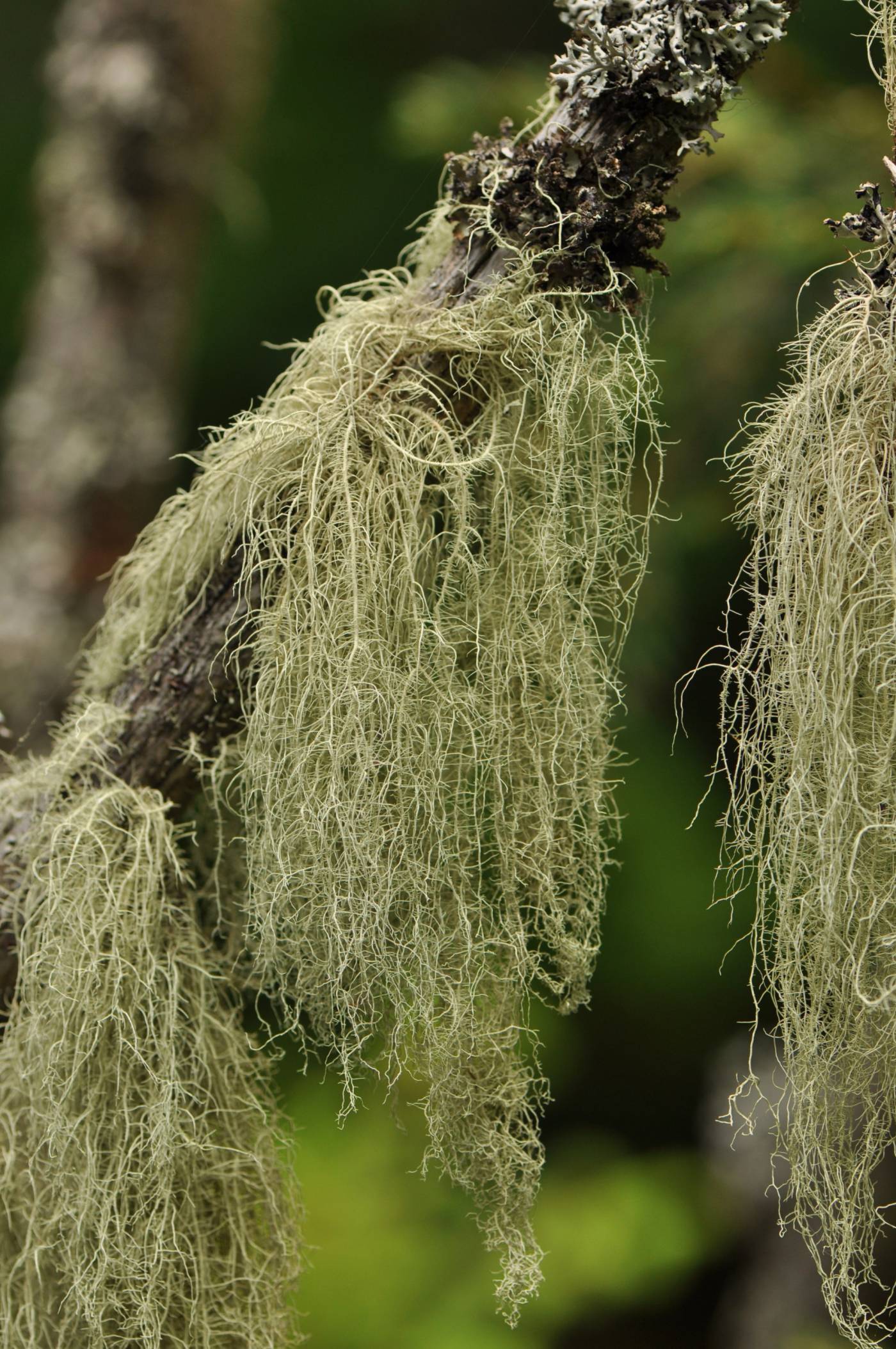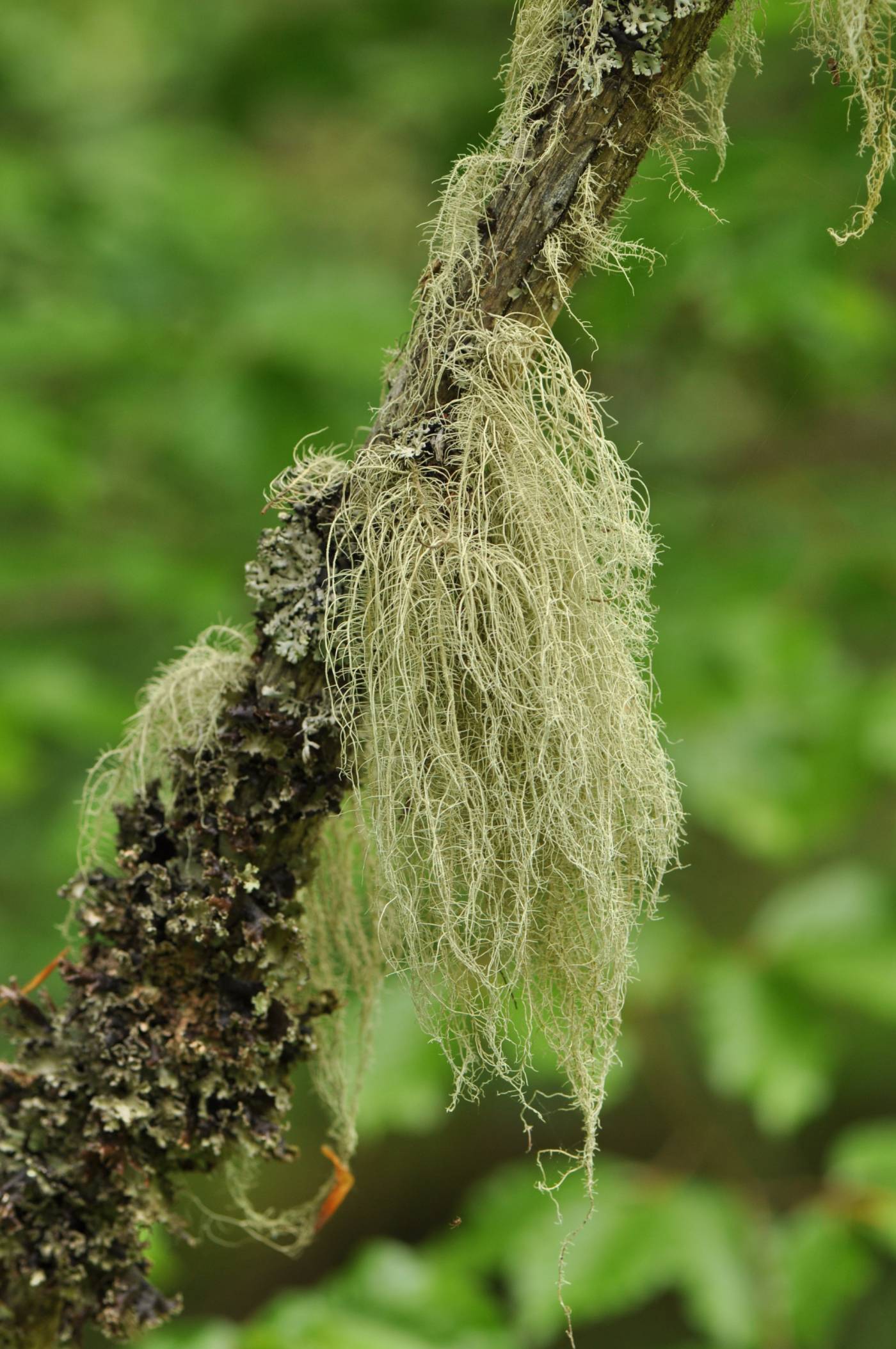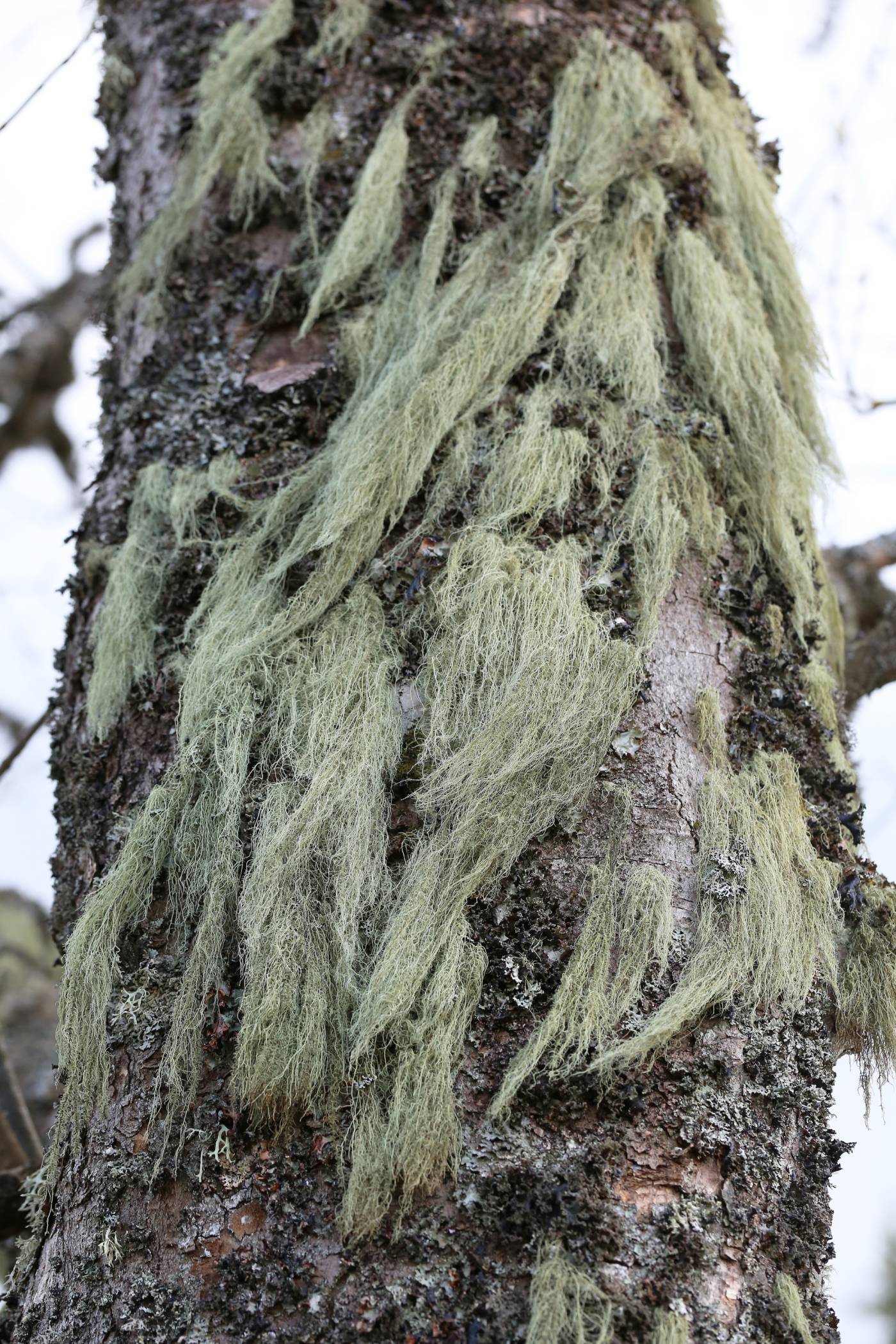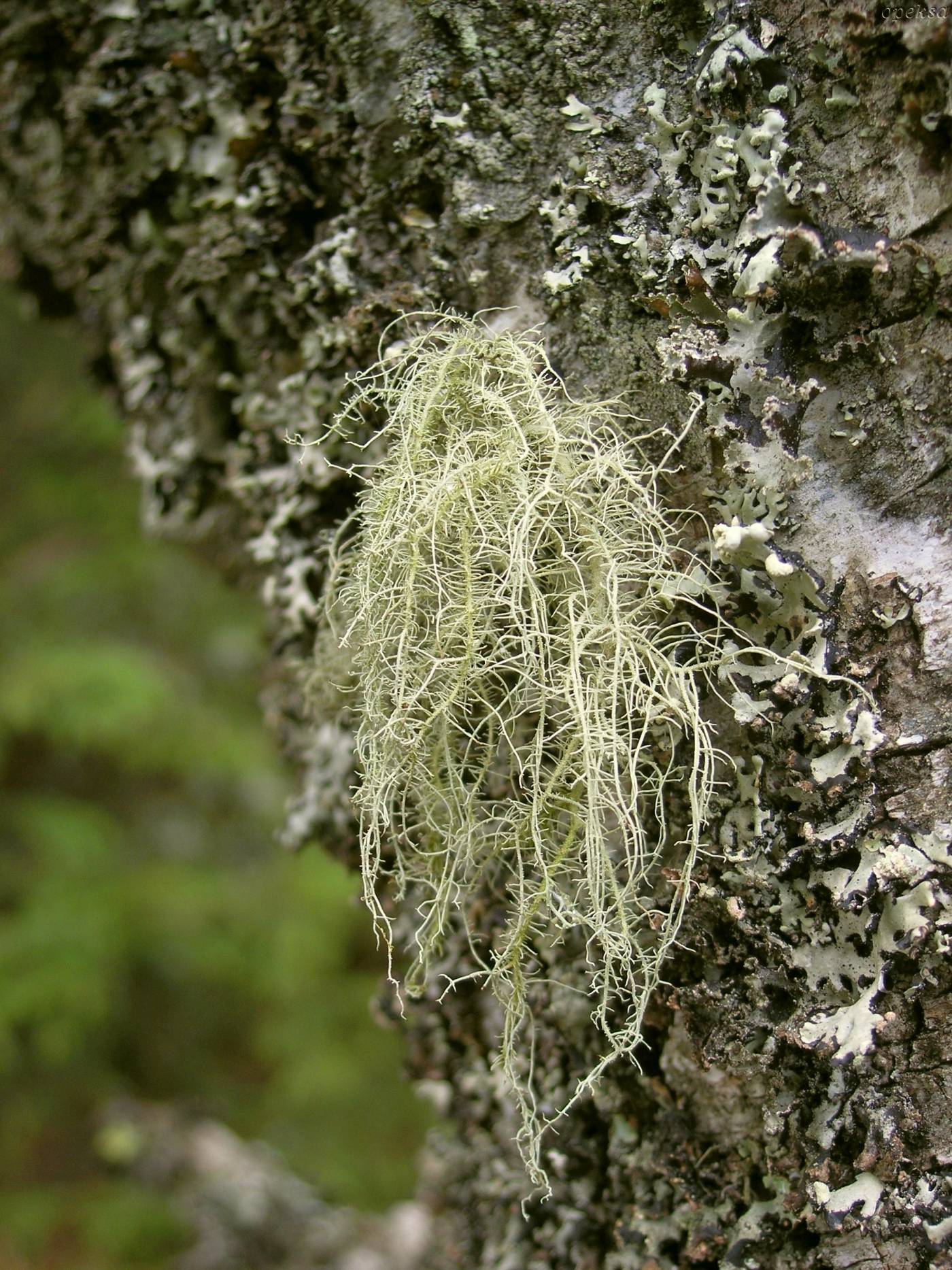A pendent, usually sterile, sorediate to isidiate species with a black base and relatively thick cortex and thin dense medulla. It contains salazinic acid (K+ red) in the medulla, sometimes with accessory protocetraric acid. It is very variable and many taxa distinguished in the past are currently considered synonyms. For example, fruticose only little pendent forms are sometimes called U. diplotypus, which also includes U. saxicola described from north Bohemian sandstones (Anders 1928, Keissler 1960). Usnea dasopoga may be confused with U. barbata, but differs both in morphology and DNA sequence data (Clerc & Naciri 2021).
In Europe, the lichen is widely distributed. It is abundant mainly in montane forests, more rarely also on siliceous rocks. In the Czech Republic, it is one of the most common Usnea species. It is common in the mountains on branches and trunks of fir, spruce, beech, alder and birch trees, at lower elevations also in young larch plantations and in treetops of old oaks.
Recently, a similar U. cylindrica has been described in Scandinavia. It is distinguished by filamentous branching type with thin parallel secondary branches and no dominant main branch (Clerc 2011). Its occurrence in mountain areas in the Czech Republic is possible.
Literature: Anders J. (1928): Die Strauch- und Laubflechten Mitteleuropas. Anleitung zum Bestimmen der in Mitteleuropa vorkommenden Strauch- und Laubflechten. – G. Fischer, Jena. Clerc P. (2011): Usnea. – In: Thell A. & Moberg R. [eds], Nordic Lichen Flora. Volume 4: Parmeliaceae. Uppsala: Nordic Lichen Society, Uppsala University, pp. 107–127 & 141. Clerc P. & Naciri Y. (2021): Usnea dasopoga (Ach.) Nyl. and U. barbata (L.) F. H. Wigg. (Ascomycetes, Parmeliaceae) are two different species: A plea for reliable identifications in molecular studies. – Lichenologist 53: 221–230. Keissler K. (1960): Usneaceae. – In: Rabenhorst's Krypt.-Fl., Teil 4: 1–755, Leipzig.
taxonomic classification:Ascomycota → Lecanoromycetes → Lecanorales → Parmeliaceae → Usnea
most frequented synonyms:Usnea diplotypus, Usnea filipendulaRed List (Liška & Palice 2010):VU – vulnerable
Occurrence in the Czech Republic
All records: 185, confirmed 129. One click on a selected square displays particular record(s), including their source(s).



